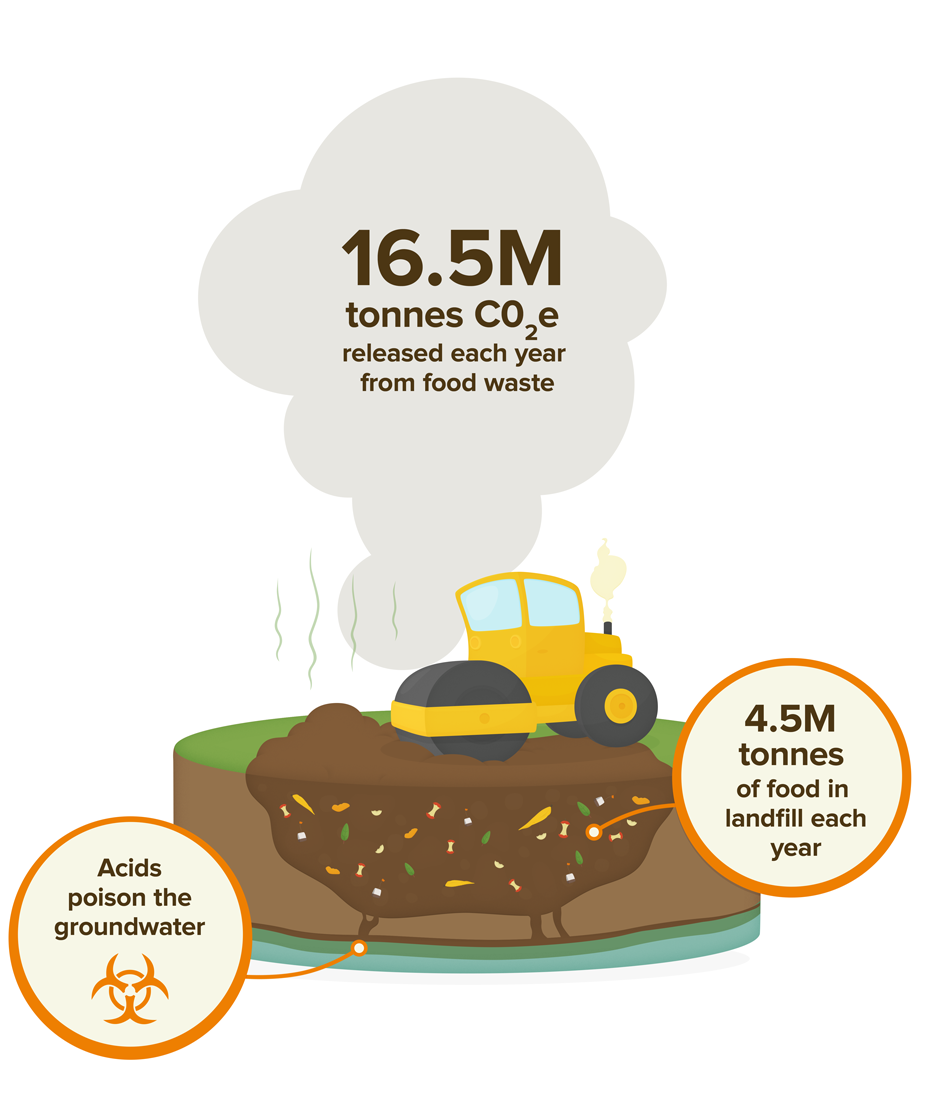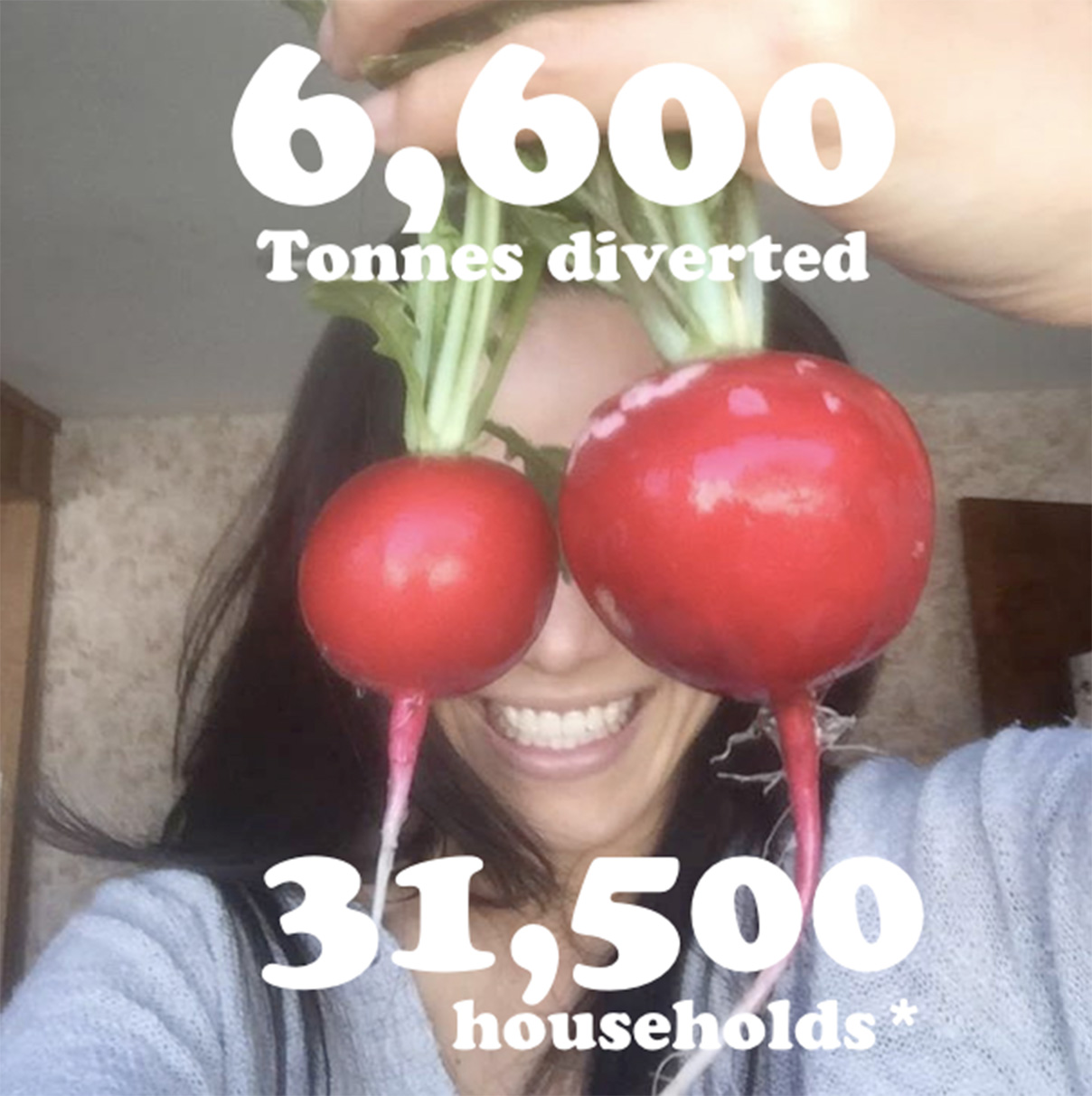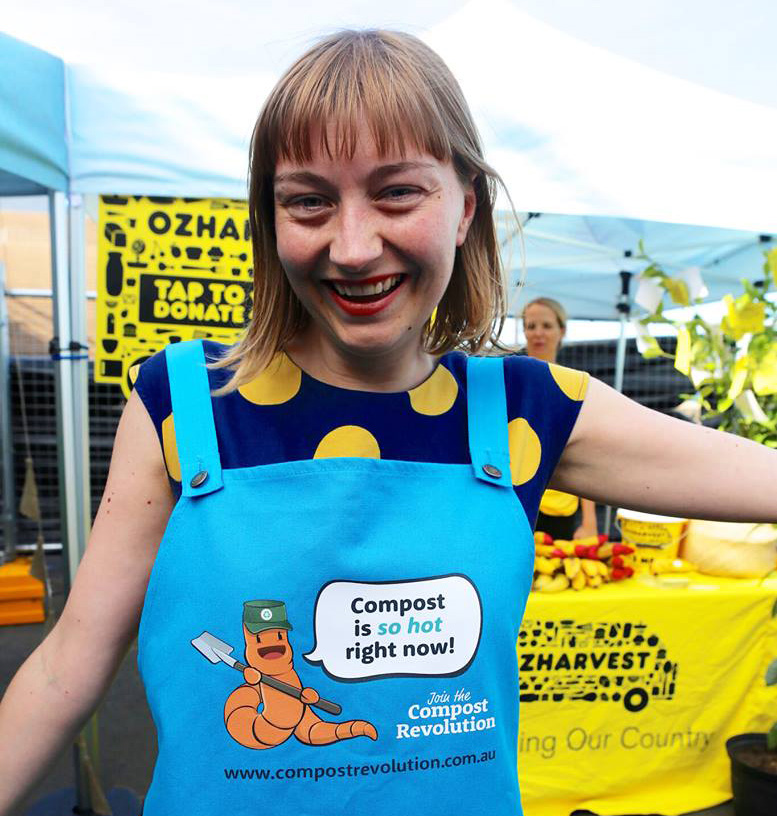This is our new blog; soon to be chockers with stories, pro tips and breaking news from the front lines of the revolution. There will be tales of heroic heirloom tomatoes, dispatches direct from the wriggly revolutionaries of the worm underground, and cracking conversations with carrot commandos across the country. To kick off the blog I wanted to share a bit about how the platform came to be and why I'm still as fired up as Costa in a compost heap to be working on the revolution in 2018 and beyond.
The 1 million elephants in the room
You probably know food waste is an enormous issue. So enormous, in fact, we send the equivalent weight of 1 Million adult elephants in food waste to landfill every year. You need a big room for that many elephants – in fact it's 4.5 MILLION tonnes of recoverable "waste" generating nasty greenhouse gases in landfill, when it could be nourishing our own gardens, pot plants and veggie patches.
No doubt we'll look back at all this and just shake our heads in disbelief. How could we have been so stupid to throw out such a valuable resource!? We burn a huge amount of fossil fuels to get food from the paddock to our plates. The epic journey from seeds (often imported!) to the farm, where staggering amounts of resources are consumed to grow, then transport our food (often multiple times), much of it detouring to be processed or packaged. We then drive our mostly petrol powered cars to the supermarket to pick it up. That's one carbon-intensively epic journey. After all that effort, around 20% of that precious food is then tossed out in next week's garbage.**

That's why back in 2011, when three councils in Sydney's east first approached us to digitise their traditional council workshops, I jumped at the chance. Workshops are a fun, highly experiential, but ultimately unscalable, way to share the love of composting – so we wanted to know if this could be replicated online. Around 800 people logged on through the pilot of the Compost Revolution in just 8 months with a 94% retention rate. The answer was a resounding YES, the revolution could be digitised!
The stats speak for themselves but my real inspiration to scale up the revolution came from the stories of people who told us that they couldn't imagine ever throwing out their food scraps again, or spoke of how it had re-ignited their passion for growing their own food or the way it made the entire family "more conscious of other types of waste they created".

Eight hundred people is a good start but it's not a true revolution unless it includes everyone - so it's got to be affordable, fun, and easy to get involved. This is where councils across the country come in (often assisted by grants from the NSW Environmental Trust and EPA***) to discount the composting kits to lower the barrier to entry for residents. Together we've recruited nearly 32,000 households* in partnership with over 50 councils, which collectively diverted 2,000 tonnes (or about 450 fully grown elephants) of waste from landfill last year alone.
The revolution has sprouted thanks to legends like Costa Georgiadis, the folks at the ABC's War on Waste, Peter Maganov, Richard Wilson and JP Williamson from the founding councils, and of course my team from Revolution Apps; Justin Bonsey, Sasha Mainsbridge, Andia Cally & our CTO Simon Meers, to name but a few. To top it off, last year we had the honour of winning the NSW Green Globe Award for Resource Recovery and being named a finalist in the Banksia Award for Leadership in the Circular Economy.
Grow carrots and community!
Leading the insurgency on the war on waste is hard to 'beet', but what I love most about the revolution is; as we compost and grow veggies in our gardens, we are also strengthening our communities and becoming more self-sufficient. Sure, we could just haul food waste off in big trucks and dump it in a factory to process it (in fact some councils do just that) – which makes much more sense than sending it to landfill – however that makes us ever more reliant on external systems that require more fossil fuels and energy to operate. It also perpetuates the myth that there is an "away" that we can throw things "to" – a fantasy our throwaway consumer society desperately needs to shake. And it doesn't encourage us to think of ourselves, as Costa would say, a part of one big composting system ... connected and participating in nature on this wonderful planet we live on.

By growing our own food we become more self-reliant, and more resilient to what may happen in the future. Our planet is changing, we've altered the biochemistry of our climate, and it's heating up with well-documented effects on our capacity to feed communities. Just try growing autumn varietals in Sydney right now, the plants are confused – it feels more like summer! Then there are major droughts, bush fires, floods and other freaky weather events all of which will impact industrial food production in the future. Given all this, it just makes total sense to become more self-reliant, plus it saves us money right now – and there's no better way to ensure our food is organic and healthy than by growing it ourselves!
Revolutions are social movements so most of all we would love to hear your stories and what you would like to see in the blog. Revolutions need leaders too – so get into the comments section, hit us up on Facebook, or email us with questions, provocations or revolutionary ideas to cut waste, grow healthy food and gardens, and build stronger more resilient communities.
Vive la révolution
David Gravina.
Founder and Composter in Chief
*As of 13 April, 2018.
** Do Australians waste $8 billion worth of edible food each year? - RMIT ABC Fact Check
*** The Compost Revolution is a NSW EPA Waste Less, Recycle More initiative funded from the waste levy.
P.S. like what you've read? Subscribe to our updates & we'll send you more blog posts and other news from the front-lines of the revolution.



